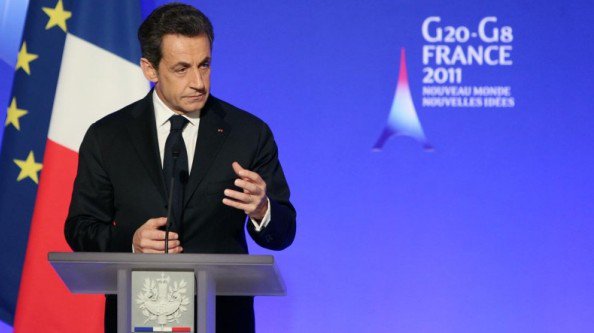The priorities of the French Presidency for the G8 include a pervasive and conspicuous addition: the Internet. Including the digital economy in the international agenda was a signal from the always-ambitious President Sarkozy that his term at the helm would focus on pressing and emerging issues. As a recent White House strategy demonstrates, international cooperation regarding the Internet and digital economy is one such issue.
Avoiding another bursting bubble
For many in the financial service and investment industries the digital economy remains little understood and is viewed to offer ample opportunities for economic growth. However, as The Economist has recently speculated, “irrational exuberance” could set the stage for another dot-com bubble burst. With the global economy still recovering from the recent financial crisis, such a development could be devastating.
Today the global digital economy is much more integrated than in the past and is growing in the emerging economies of China and India. Attention from Heads of State at the international level provides the opportunity for realistic assessments and strategies for maximizing the potential of the growing digital economy.
The e-G8 Forum: Leaders of Technology Industries on the World Stage
President Sarkozy’s grand project will be emboldened by the convening of an e-G8 Forum, a “unique gathering of the world’s top Internet and digital leaders” that will inform the discussions of the G8 leaders at Deauville. Held immediately prior to the Deauville Summit (26-27 May), the e-G8 Forum (24-25 May) will address pertinent issues relating to the Internet, digital economy and digital culture.
Themed “The Internet: Accelerating Growth”, the e-G8 Forum is focused around maintaining and adapting the global economy in the face of technological change. Despite its economic focus, the e-G8 Forum will also address the social and cultural implications of digital technologies. Copies of the invitations to the event have been posted online and promise discussion of a “wide range of issues, including for example human rights, intellectual property and technological investment”.
Despite the diverging topics that will be discussed at the e-G8 Forum—ranging from ‘the Internet and Economic Growth’, ‘the future of the Internet’, ‘Innovation and Financing’, and the impact of the digital age on ‘innovation and education’, ‘small and medium-sized businesses’, ‘entertainment and culture’, ‘creativity and entrepreneurship’, ‘trust’ and ‘privacy’—the topics are all rooted in concerns about accessibility, ownership, and security.
Changing Business Models and Social Practices
- Access to neutral communication infrastructures remains a necessary ingredient for unlocking the potential of the digital economy. Currently, financial and geographical restraints create boundaries for the haves and have-nots in the digital realm. These prohibiting factors need to be addressed so that the potential for innovation can be spread throughout society and the world.
- Ownership over both the technology and content of the online economy needs to be balanced to ensure sustainable growth and cultural expression. Laws and regulations need to adapt to changing circumstances rather than seek to entrench existing models and practices.
- Security remains paramount for the maintenance of information as well as privacy of communications. Businesses and individuals must be secure to communicate ideas and opinions freely and effectively.
Joseph F. Turcotte is a researcher with The Centre for International Governance Innovation (CIGI) and a PhD Candidate at York University (Toronto, Canada) focusing on intellectual property rights, the global knowledge economy and emerging digital technologies.
(Image credit: Presidency of the French Republic http://www.g20-g8.com)
